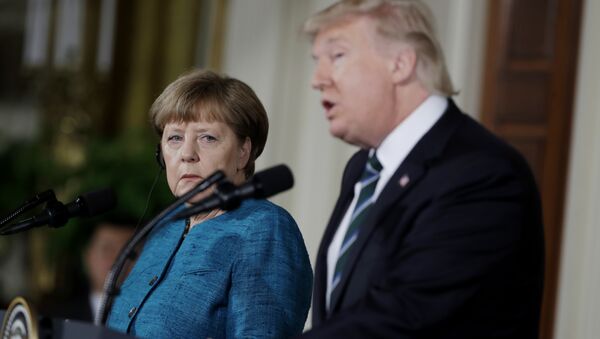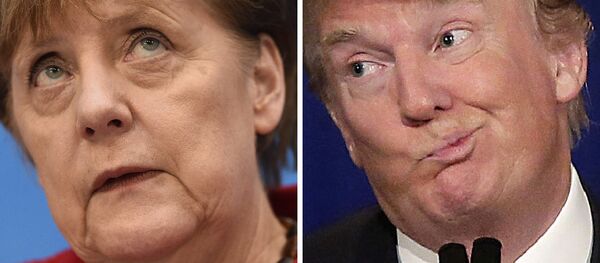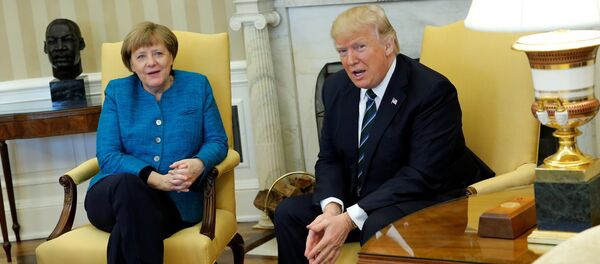“I reiterated to Chancellor Merkel my strong support for NATO as well as the need for our NATO allies to pay their fair share for the cost of defense,” Trump said during a joint news conference with Merkel.
On Saturday, Trump was less polite though. In a Twitter post he wrote that he had had a “great” meeting with the German Chancellor.
“Nevertheless, Germany owes … vast sums of money to NATO & the United States must be paid more for the powerful, and very expensive, defense it provides to Germany!” Trump wrote.
“Must pay more”
Donald Trump’s campaign trail demand that America’s European allies should spend more on defense alarmed European politicians, long used to relying on the “security umbrella” provided to them by the United States.
Since the start of the 2014 confrontation with Russia, Washington has been increasingly insistent in its demand for Europeans to ramp up their defense spending to 2 percent of their GDP.
Meanwhile, Germany keeps spending a mere 1.2 percent of its GDP on defense. On Sunday, Defense Minister Ursula von der Leyen dismissed Trump’s claims about Germany owing the US and NATO a huge sum of money.
“There is no debit account at NATO," von der Leyen said in a statement, adding that it was wrong to link the alliance's target for members to spend 2 percent of their economic output on defense by 2024 solely to NATO.
Fully aware of the strategic importance of the US military presence in Europe, President Trump is not threatening a US pullout from NATO or a US troop withdrawal from the continent.
What he really wants is to see his European allies spending more on defense.
First, this would land US arms manufacturers new contracts, and second, it would make European armies more combat ready and reduce the number of US troops engaged in NATO missions overseas.
The US and Britain usually account for a hefty 80 percent of NATO contingents abroad.
Vital element
Reluctant as it is to spend more on defense, Germany remains a vital element of American military presence in the world with an estimated 50,000 US troops manning some 170 military facilities deployed on its territory. The US military contingent in
No more US pampering
In an interview with RT, Alexander Kamkin, a senior researcher at the Center of German Studies in Moscow, said that US control over Germany is the cornerstone of “Euro-Atlantic security.”
“Germany is a major hub for troop deployments to various parts of Europe. It is also one of the few European countries where the Americans keep their tactical nuclear weapons,” Kamkin said.
The center’s deputy director Yekaterina Timoshenkova believes that in his bid to make the US stronger, Trump will be building up his military might outside the NATO framework.
“Trump is now changing his tack vis-à-vis his [German] ally. Without going back on his commitments, he is sending a clear signal that there will be no more US pampering for Europe,” Timoshenkova told RT.
She added that this is opening the way for the Europeans to build up their own military force, parallel with NATO’s.
“Right now there is no alternative to the US military presence in Europe, but the Germans are already thinking about a powerful European army, even a nuclear-powered one, capable of defending the whole of Europe,” Yekaterina Timoshenkova said.
Never miss a story again — sign up to our Telegram channel and we'll keep you up to speed!




